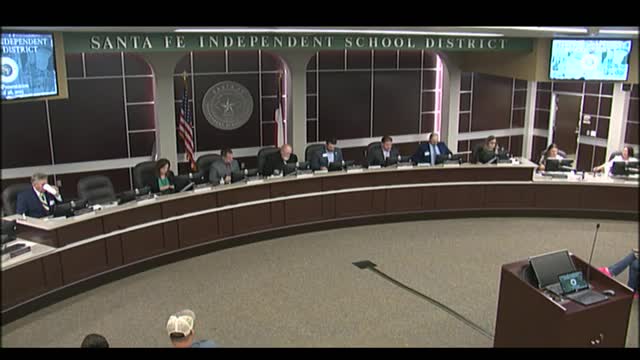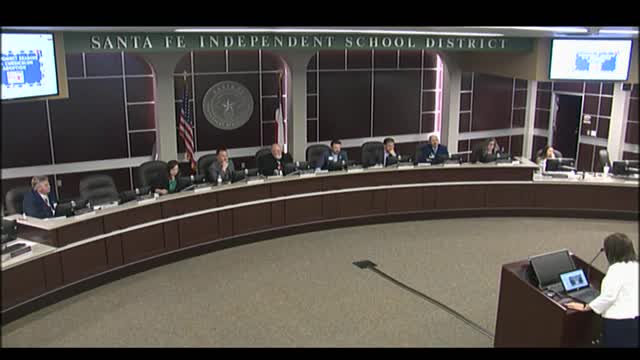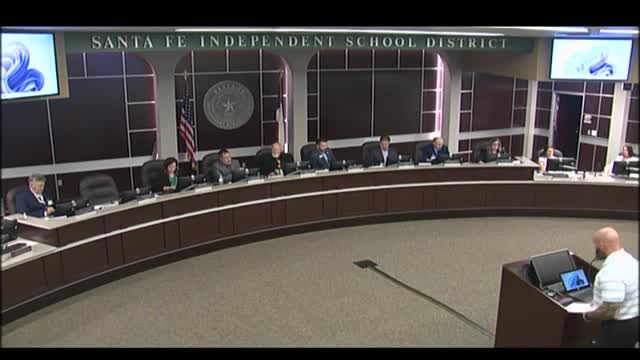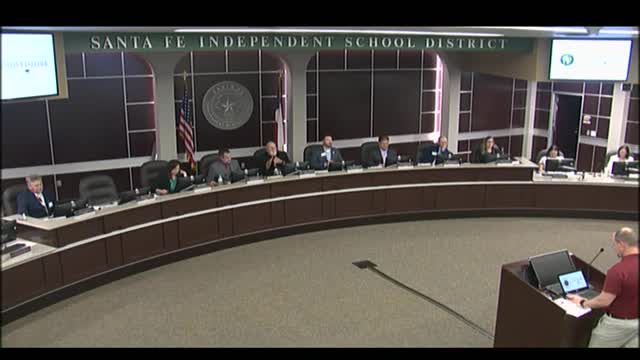Article not found
This article is no longer available. But don't worry—we've gathered other articles that discuss the same topic.

Votes at a glance: Santa Fe ISD board approves personnel actions, refunds, copier contract and consent agenda

Santa Fe ISD board adopts state‑listed Bluebonnet K–5 reading curriculum; district to spend up to $94,460

Santa Fe ISD officials say 2023 TEA grading changes lowered letter grade despite score gains

